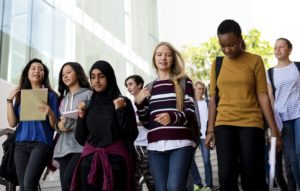When I first started looking into my project, I couldn’t believe the sheer amount of global politics ia ideas and global politics ia topics out there—it was pretty wild! I spent a lot of time scrolling through various sources and ended up jotting down a bunch of ib global politics ia ideas that really got me thinking about real-world political issues. I even noted some global politics ia questions that made me question the connections between political theories and everyday events. What really helped me was sorting through a mix of ia ideas global politics that ranged from super straightforward options—like easy global politics ia ideas that any beginner can handle—to more challenging ones that required a deeper analysis, such as some ib global politics ia topics I found online.
I remember checking out several ib global politics ia examples that showcased how students linked theory with practical scenarios, which helped me see that my own commentary could be both relatable and analytical. I even discovered some global politics ia research questions and a few hl global politics ia ideas that pushed me to consider fresh angles on the subject.
Global Politics IA Topics
Trust me, there’s a lot to choose from, but once you start filtering through the options, you’ll find a setup that really clicks with your style and makes the whole project feel way less intimidating.
Every topic is paired with three research questions and a brief overview of how students can approach the analysis, incorporate multiple perspectives, and link theory to real-world events in line with IB criteria.
1. Populism and Nationalism in Contemporary Politics
- RQ1: How have populist movements influenced national policy-making in [Country]?
Overview: Examine recent political speeches, electoral outcomes, and policy changes to evaluate how populist rhetoric shifts government priorities. - RQ2: To what extent does nationalist rhetoric shape public opinion and political engagement in [Country/Region]?
Overview: Analyze media sources and public opinion polls to assess the relationship between nationalist narratives and voter behavior. - RQ3: How do populist governments balance domestic appeal with international responsibilities?
Overview: Use case studies to compare domestic policy shifts with changes in foreign policy, evaluating potential tensions between nationalist interests and global cooperation.
2. The Role of International Organizations in Conflict Resolution
- RQ1: How effective has the United Nations been in mediating conflicts in [Region]?
Overview: Evaluate case studies from UN peacekeeping missions, using reports and resolutions to discuss strengths and limitations in conflict management. - RQ2: To what extent do regional organizations (e.g., the African Union, ASEAN) contribute to peacebuilding efforts?
Overview: Compare the interventions and outcomes of regional organizations with global institutions, analyzing successes and challenges. - RQ3: How do international organizations adapt their strategies in response to evolving conflict dynamics?
Overview: Analyze shifts in policy and intervention strategies over time, drawing on recent conflicts and relevant academic debates.
3. Global Migration and Refugee Policies
- RQ1: How do national migration policies reflect broader global power dynamics?
Overview: Critically analyze policy documents and media reports to explore how geopolitical interests shape migration strategies. - RQ2: To what extent does international law influence refugee protection practices in [Country/Region]?
Overview: Examine treaties, conventions, and case studies to evaluate the gap between legal frameworks and policy implementation. - RQ3: How do public perceptions of migration impact governmental approaches to refugee crises?
Overview: Utilize opinion polls and media analysis to discuss the interplay between public sentiment, policy debates, and international pressure.
4. Human Rights in Global Politics
- RQ1: How effective are international human rights conventions in promoting political reform in authoritarian regimes?
Overview: Analyze case studies where human rights pressures have led to political change, comparing intended outcomes with on‐the‐ground realities. - RQ2: To what extent do state interests override human rights concerns in international diplomacy?
Overview: Critically evaluate diplomatic decisions and international responses, using recent examples where strategic interests conflicted with human rights advocacy. - RQ3: How have recent human rights violations influenced global political alliances and diplomatic relations?
Overview: Examine shifts in alliance patterns and foreign policy responses, drawing on news reports and academic analyses to assess long-term impacts.
5. Globalization and State Sovereignty
- RQ1: How has economic globalization challenged traditional notions of state sovereignty?
Overview: Analyze trade agreements, multinational corporations, and supranational entities to discuss the erosion or transformation of sovereign power. - RQ2: To what extent do supranational organizations influence national policy-making in the era of globalization?
Overview: Compare case studies where national policies were adjusted to comply with international norms, discussing both benefits and constraints. - RQ3: How do states balance domestic interests with obligations to global governance frameworks?
Overview: Evaluate policy decisions and diplomatic negotiations to assess how states navigate competing pressures from internal and external stakeholders.
6. Climate Change Politics
- RQ1: How have international climate negotiations influenced domestic policy changes in [Country]?
Overview: Examine national policy documents and international agreements to determine the impact of global negotiations on local initiatives. - RQ2: To what extent do power dynamics shape the outcomes of international climate conferences?
Overview: Analyze the roles of major emitters versus developing nations, using negotiation records and media coverage to assess equity and influence. - RQ3: How do non-state actors (e.g., NGOs, activist groups) influence global climate policy debates?
Overview: Investigate case studies of advocacy campaigns and their effect on international agendas, discussing their contribution to policy shifts.
7. Cybersecurity and Global Politics
- RQ1: How do state actors use cyber strategies as tools in geopolitical conflicts?
Overview: Evaluate documented cyber incidents and official responses, linking case studies with theories of modern warfare and deterrence. - RQ2: To what extent do cyber threats influence national security policies in major economies?
Overview: Analyze policy changes, defense spending, and public statements to understand how cybersecurity has become central to national strategy. - RQ3: How are international norms evolving to address the challenges of cyber warfare?
Overview: Critically assess emerging international legal frameworks and diplomatic initiatives aimed at regulating state behavior in cyberspace.
8. Global Terrorism and Counterterrorism Strategies
- RQ1: How have transnational terrorist networks influenced the formulation of global security policies?
Overview: Examine recent terrorist events and the subsequent policy responses, analyzing the interplay between security imperatives and civil liberties. - RQ2: To what extent do counterterrorism measures respect human rights in [Country/Region]?
Overview: Evaluate the balance between security and rights by comparing counterterrorism policies with reports from human rights organizations. - RQ3: How do international collaborations shape the strategies used to combat global terrorism?
Overview: Use case studies of joint operations and alliances to assess the effectiveness and challenges of multinational counterterrorism efforts.
9. The Role of Media in Shaping Global Political Narratives
- RQ1: How does media framing influence public perceptions of international conflicts?
Overview: Analyze media content and framing techniques across different outlets, discussing the potential impacts on public opinion and policy support. - RQ2: To what extent does state-controlled media shape both domestic and international political discourse?
Overview: Compare examples from authoritarian versus democratic contexts, examining how media control or freedom impacts political narratives. - RQ3: How do social media platforms alter the dissemination and reception of global political information?
Overview: Evaluate the role of digital media in spreading alternative narratives, using case studies to explore both its potential and pitfalls.
10. Regional Integration and Its Challenges
- RQ1: How effective is regional integration in promoting economic and political stability in [Region]?
Overview: Analyze the structure and outcomes of regional blocs through case studies, assessing successes and identifying obstacles to deeper integration. - RQ2: To what extent do cultural and historical factors influence the success of regional cooperation?
Overview: Use comparative analyses of regions with shared histories versus diverse backgrounds to explore factors that foster or hinder unity. - RQ3: How do regional organizations navigate internal conflicts while pursuing collective goals?
Overview: Evaluate negotiation processes and conflict resolution mechanisms within regional institutions, drawing on recent events and policy reviews.
11. The Politics of International Trade
- RQ1: How do international trade agreements shape political relationships between nations?
Overview: Analyze recent trade deals and their political repercussions, discussing both economic benefits and geopolitical tensions. - RQ2: To what extent do protectionist policies reflect underlying geopolitical conflicts?
Overview: Compare case studies of protectionist measures with diplomatic disputes to assess how economic policy is used as a tool in broader power struggles. - RQ3: How do global supply chain disruptions influence international political cooperation?
Overview: Examine the impact of events like pandemics or natural disasters on trade and diplomacy, discussing lessons learned and future policy adaptations.
12. The Influence of Superpowers on Global Governance
- RQ1: How do superpowers shape international institutions to reflect their strategic interests?
Overview: Evaluate historical and current examples where leading nations have influenced the structure and policies of global organizations. - RQ2: To what extent does superpower rivalry impact global political stability?
Overview: Analyze diplomatic interactions and strategic competitions between major powers, discussing implications for smaller states and multilateral cooperation. - RQ3: How do emerging powers challenge the existing global order established by superpowers?
Overview: Examine case studies of rising nations, assessing their strategies for reforming international institutions and altering power balances.
13. Gender and Global Politics
- RQ1: How has the increased inclusion of women in political leadership affected policy outcomes in [Region]?
Overview: Analyze statistical data and qualitative case studies to explore correlations between gender diversity in leadership and policy innovation. - RQ2: To what extent do gender perspectives influence international peacekeeping and conflict resolution efforts?
Overview: Compare outcomes of missions with varying levels of gender integration, discussing the role of inclusive policies in global governance. - RQ3: How do global movements for gender equality shape national political reforms?
Overview: Evaluate the impact of transnational advocacy campaigns and international pressure on domestic gender policies and societal change.
14. The Role of Non-State Actors in Global Politics
- RQ1: How do transnational advocacy networks influence international policy-making?
Overview: Assess case studies where NGOs or activist groups have shifted policy debates, using media reports and policy documents to track influence. - RQ2: To what extent do multinational corporations shape global political decisions?
Overview: Evaluate examples of corporate lobbying or public–private partnerships that affect international regulations, discussing both benefits and ethical concerns. - RQ3: How do non-governmental organizations challenge traditional state-centric models of global politics?
Overview: Analyze the roles and strategies of NGOs in addressing issues like human rights and environmental protection, assessing their impact on state policies.
15. The Politics of Energy Security
- RQ1: How do global energy demands shape international political alliances?
Overview: Examine recent energy policies and diplomatic agreements, discussing how energy dependencies affect alliances and geopolitical strategies. - RQ2: To what extent does energy dependency influence national foreign policies in key energy-importing countries?
Overview: Analyze policy decisions and strategic partnerships to assess how reliance on foreign energy shapes diplomatic priorities. - RQ3: How do renewable energy initiatives alter global power dynamics in the energy sector?
Overview: Evaluate case studies of countries transitioning to renewables, discussing potential shifts in traditional power structures and economic competitiveness.
16. The Impact of Elections on Global Political Stability
- RQ1: How do contested elections in influential nations affect regional stability?
Overview: Analyze electoral disputes and their ripple effects on neighboring countries, discussing both immediate and long-term geopolitical consequences. - RQ2: To what extent do international observers and media coverage impact the legitimacy of electoral processes?
Overview: Evaluate reports from international bodies and media analyses to understand how external validation or criticism shapes electoral outcomes. - RQ3: How do electoral reforms reflect broader trends in global democratization?
Overview: Compare reform measures across different nations to assess how efforts to improve electoral integrity relate to global democratic norms.
17. Conflict Resolution and Peacebuilding in Post-Conflict Societies
- RQ1: How effective are transitional justice mechanisms in fostering long-term political reconciliation?
Overview: Analyze case studies where transitional justice (e.g., truth commissions) has been implemented, assessing impacts on societal healing and political stability. - RQ2: To what extent do international interventions contribute to sustainable peacebuilding efforts?
Overview: Compare the outcomes of externally supported versus locally driven initiatives, using both qualitative and quantitative data to evaluate success factors. - RQ3: How do local traditions interact with international norms to shape post-conflict governance?
Overview: Examine instances where indigenous conflict resolution methods have been integrated with international practices, discussing their combined effects on state-building.
18. Diplomacy and Global Crisis Management
- RQ1: How have diplomatic efforts succeeded or failed in managing recent international crises?
Overview: Evaluate case studies of crises (e.g., humanitarian disasters, political standoffs), focusing on diplomatic responses and their outcomes. - RQ2: To what extent do multilateral diplomatic initiatives shape the resolution of global crises?
Overview: Analyze coordinated efforts among multiple nations and organizations, discussing strengths and limitations in crisis management. - RQ3: How do bilateral negotiations complement multilateral efforts during global emergencies?
Overview: Investigate instances where direct state-to-state negotiations played a key role alongside broader international initiatives, assessing their relative contributions.
19. Nationalism vs. Globalism in Contemporary Politics
- RQ1: How do nationalist policies affect a nation’s engagement with international institutions?
Overview: Critically evaluate policy decisions that prioritize national interests, using recent examples to discuss implications for global cooperation. - RQ2: To what extent do globalist ideologies influence domestic political reforms in traditionally nationalist states?
Overview: Analyze shifts in political rhetoric and policy, discussing the interplay between domestic reform agendas and international expectations. - RQ3: How do political narratives reconcile national interests with global responsibilities?
Overview: Compare speeches, policy documents, and media narratives to explore how leaders balance domestic priorities with global commitments.
20. The Future of International Law in Global Politics
- RQ1: How effective is international law in addressing contemporary global challenges?
Overview: Evaluate key legal cases and international disputes to assess the practical impact of legal frameworks on issues such as human rights, trade, and environmental protection. - RQ2: To what extent do national interests shape the development and enforcement of international law?
Overview: Analyze instances where state agendas have influenced international legal outcomes, drawing on diplomatic records and scholarly debates. - RQ3: How do evolving global political dynamics challenge the relevance of traditional international law frameworks?
Overview: Examine theoretical discussions and real-world examples to assess whether international law is adapting to modern geopolitical realities.
Wrapping Up
Hope this article about Global Politics IA Topic Ideas for IB Written Commentary gives you a clearer picture on how to pick your topic.
I totally get that sorting through a pile of global politics ia topics and global politics ia questions can feel overwhelming at first, but mixing in various ideas can really change the game. For me, comparing a range of ib global politics ia ideas with a few ia ideas global politics helped narrow things down into something that wasn’t only doable but also genuinely interesting.
I found that even the easy global politics ia ideas were a great starting point before diving into some of the more detailed ib global politics ia topics and examples. Plus, adding a couple of global politics ia research questions and even some hl global politics ia ideas to my list made the whole process feel more personalized.
Just remember, there’s no one-size-fits-all method here—experiment until you land on what feels right.








